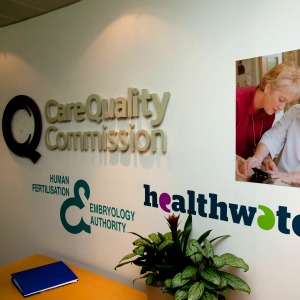Practices that scored well on the GP patient survey were penalised by the CQC’s ‘intelligent monitoring’ scheme because it got answers ‘the wrong way round’, despite the error having been previously flagged up during testing.
During the regulator’s annual accountability hearing in front of the health select committee yesterday, David Behan, the CQC’s chief executive, made the admission that the regulator had changed the wording of the question on the patient survey around ease of access, but had failed to change the answers accordingly, an error affecting 400 practices.
This resulted in practices that received good comments from patients being marked as high risk for that particular indicator, while practices receiving negative comments from patients were given positive ratings for the indicator.
The risk ratings were published on the regulator’s website last month, and were immediately criticised by GPs for rating practices on imperfect data without completing an inspection. The ratings were seized on by national and local media, with practices marked as ‘at risk of providing poor care’.
Related stories
GPs receive too few complaints, suggests CQC
The CQC has already been forced to apologise to 60 practices who were marked as risky following errors with the indicators, which were first flagged up by Pulse, and has been forced to overhaul five of the 38 measures it uses.
But Mr Behan’s comments are the first indication of the extent of the errors.
He told the committee that its testing of the scheme in July ‘did not flag up any issues’.
He added: ‘What happened in the stakeholder discussions in August is that the question – and this is the first indicator that got withdrawn, the question about ‘can you get an appointment with your GP – that question was originally asked in the negative: ie, “do you have a problem getting an appointment with your GP”.
‘That was flipped around in August, so it was asked as a positive question. The error that we made was that the data wasn’t changed at that time.’
Dr Sarah Wollaston, the former GP who is now chair of the committee, asked: ‘In other words, having changed the question, you didn’t match the change in the answer? It was a complete flip – so people with good access ended up with a bad score, and people with bad access ended up with a good score. Is that a fair way to summarise it?’
Mr Behan replied: ‘Yes. It was the wrong way round.’
Dr Wollaston said that this was a ‘pretty serious’ mistake, and Mr Behan agreed.
He added: ‘We sent that data as part of our face validation exercise to over 400 practices. That is 400 practices out of over 7,500. People came back to us and flagged those changes but we did not pick that up at that time.’
The RCGP and the BMA have called for the whole ratings system to be withdrawn.
Pulse October survey
Take our July 2025 survey to potentially win £1.000 worth of tokens













